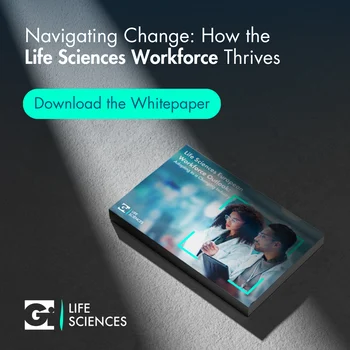Careers in the Life Sciences industry afford job candidates a number of interesting career opportunities in disciplines as varied as biotechnology and bio engineering on to data analytics, MedTech and more. However, recent research carried out by Gi Life Sciences together with the labour market analytics firm Lightcast shows Europe facing a significant skills crunch. This is a phenomenon driven by rising demand for specialised roles, demographic changes and rapid technological advancements. Below, I wanted to look at what’s causing the current dilemma.
Skill shortages in high-demand areas
Our new research shows that key roles in biopharma, MedTech and research/analytics are all experiencing a widening skills gap. While job postings for positions like laboratory technicians and pharmacists remain high, new demands are emerging in areas such as AI, digital health and advanced medical technology. And not all candidates have proficient skills in these emerging areas – in many cases most are just beginning to upskill in these spaces so they don’t yet meet employer needs when it comes to practical use of AI-driven tools, digital health processes, etc. Some positions have seen dramatic growth in demand in recent years and it is clear that future skills training needs to focus on these areas. Rapidly growing talent needs include roles like neurodiagnostic technicians (+550%) and cancer care specialists (+150%). Interestingly, these are two fields that specifically reflect Europe’s ageing population's healthcare demands.
An ageing workforce and underutilised talent are issues of concern
There’s a generational shift and gap in younger talent for the Life Sciences that need to be addressed. One-third of the Life Sciences workforce is now over 50 (the UK has the oldest workforce in this space), particularly in technical and operational roles. This demographic shift presents challenges for retaining and transferring critical expertise while filling roles vacated by retirees. There is a big risk of further stress on the labour market if younger generations of workers cannot be trained rapidly; and also if growing numbers of college and university graduates choose not to study scientific disciplines or to pursue careers in the Life Sciences. In those cases, there will be a strong need to source talent from elsewhere. Our research suggests that, in some cases, this could be done by leveraging the skills of underutilised workforce segments. For example, women and older workers remain underrepresented in leadership and specialised technical roles. Plus, there is a significant gender gap in hiring for tech related roles in healthcare and Life Sciences. Roles like medical dosimetrists and health information managers/directors remain male-dominated and upskilling women to take on these positions in geographies with skills shortages is one way of accessing needed talent. These untapped connections between people, skills, and opportunity can unlock real progress if approached with intention and inclusivity.
Challenges in reskilling and rectifying mismatches in Emerging Skills
As with other industries, many organisations in the Life Sciences are struggling to find hires that have so-called emerging skills needed to deliver services in future-facing roles. For example, in many parts of Europe, the demand for expertise in areas like orthopaedic surgery and digital health exceeds the current workforce's capabilities. This puts a strategic choice before healthcare institutions, laboratory management and other organisations that need such talent. Either there must be greater collaboration between educational institutions and organisations offering Life Sciences roles (vocational training, internships and mentorships) or internal investments must be made into reskilling. Our new research flags this though as a major challenge: pointing out that 50% of workers will need to reskill in the next few years and many of them are struggling to adapt as their skills become quickly outdated due to rapid technological and medical advancements. That leaves upskilling efforts and targeted workforce development as essential to bridging the current skills gap and ensuring sustainable progress.
A possible solution to narrowing skills gaps could be greater labour mobility in the Life Sciences space. Emerging markets in Eastern Europe (e.g., Bulgaria, Hungary, Latvia) are gaining prominence in the MedTech and biotech fields. Plus, they offer cost-effective and skilled talent pools. This is happening at a time when traditional hubs in Western Europe face slower growth and restructuring challenges. Supporting greater cross-Europe movement of talent and skills could help improve hiring for Life Sciences roles in the short-term future. How this plays out though remains to be seen. Employers in the Life Sciences space need to invest quickly in upskilling, embracing diverse talent pools, and adopting flexible workforce models. Without decisive action, Europe risks falling behind global competitors like the U.S. and China. Building and enabling cross-border connections - of expertise, education, and people - will be key for the evolution of the Life Sciences labour market.
Want to dive deeper into these insights? Explore our latest webinar to learn more.
If you're looking for support to navigate challenges such as these, we can help. Enter your details into our form and our team of experts will connect to explore how we can support your goals.
Because great connections do more than build teams.
They ignite innovation and empower individuals.
Great Connections Bring Progress.

.png)

